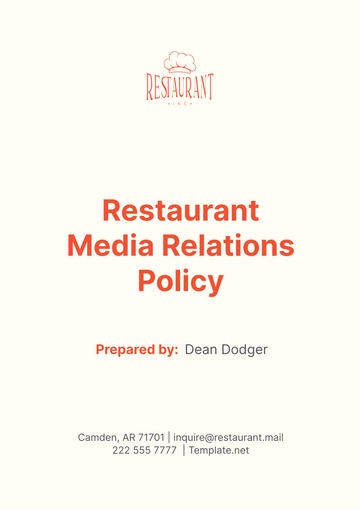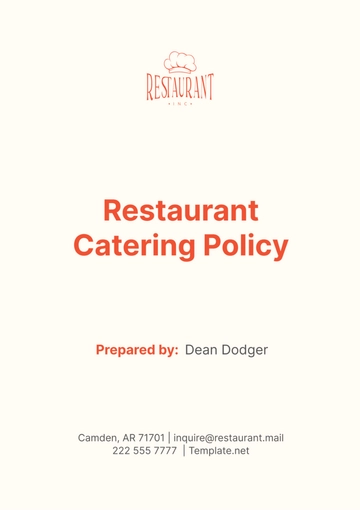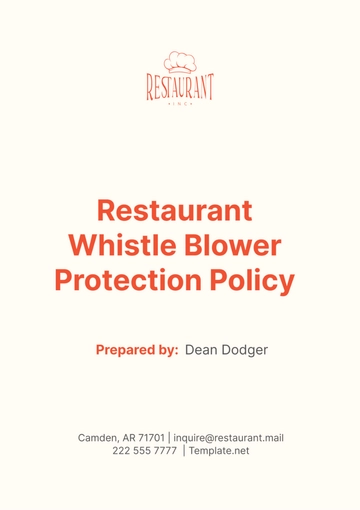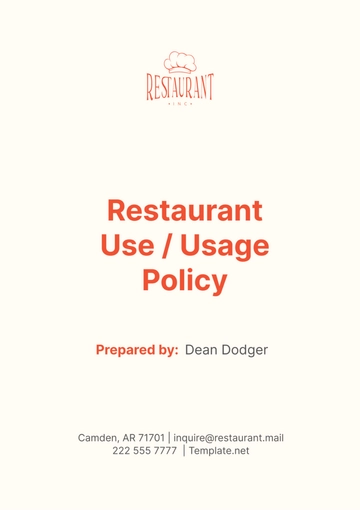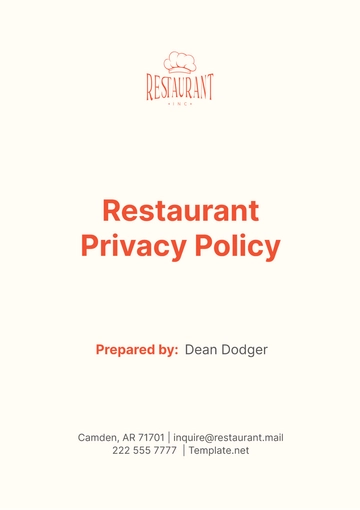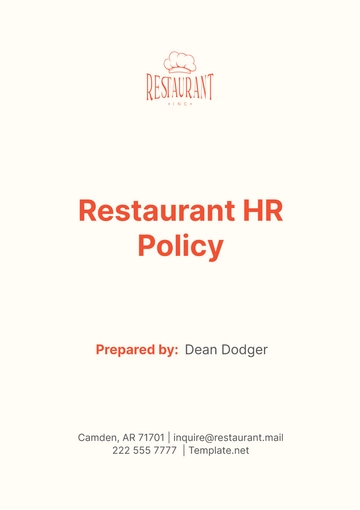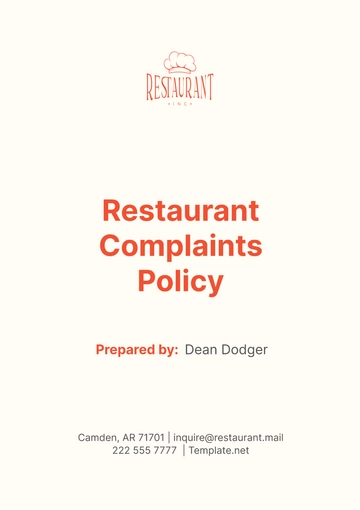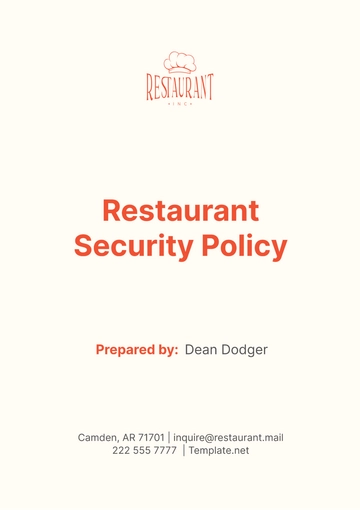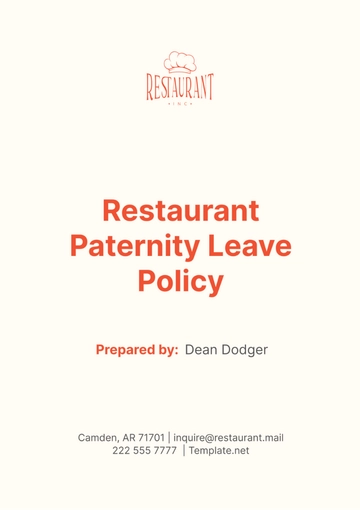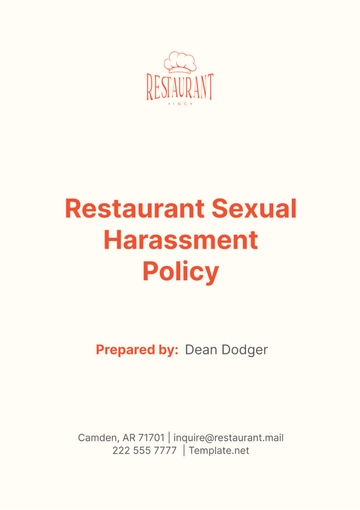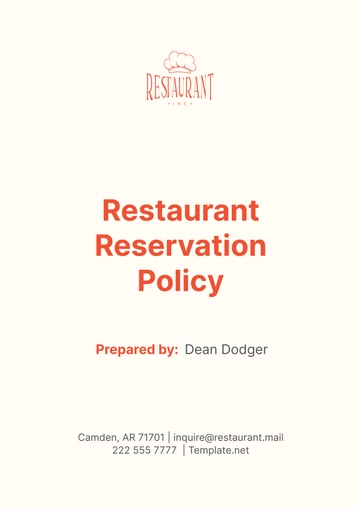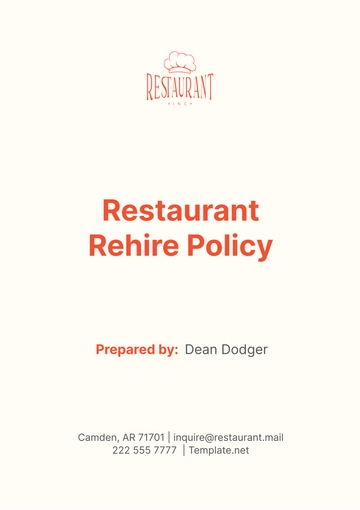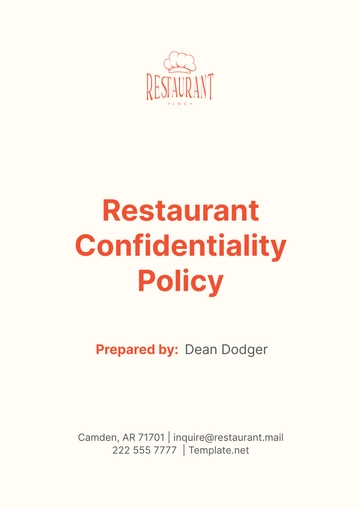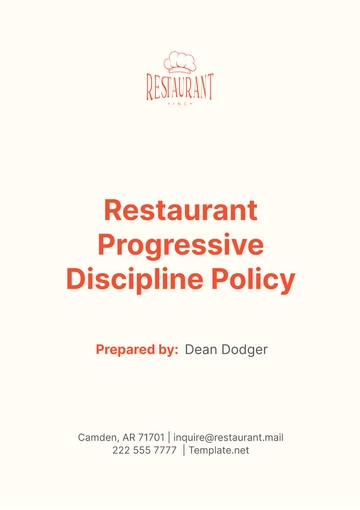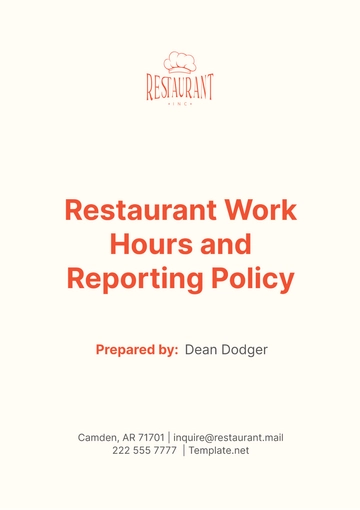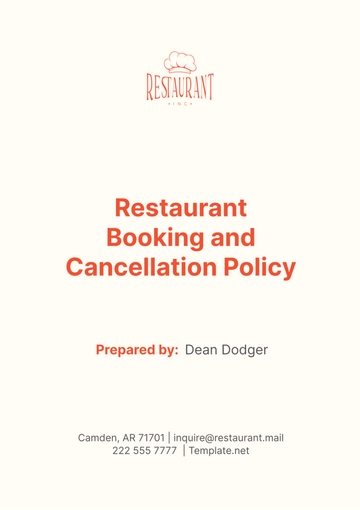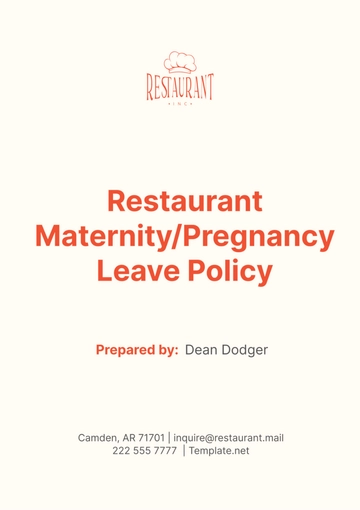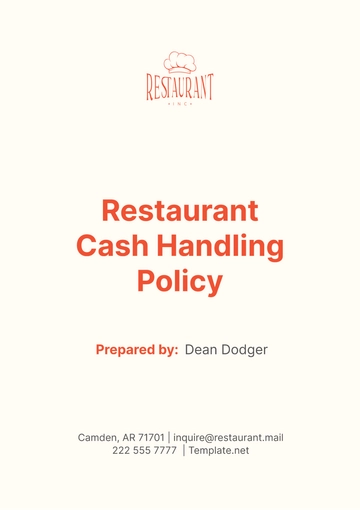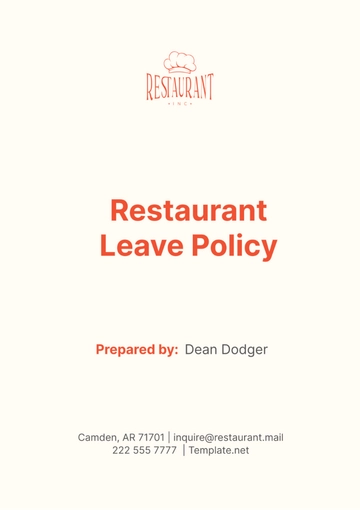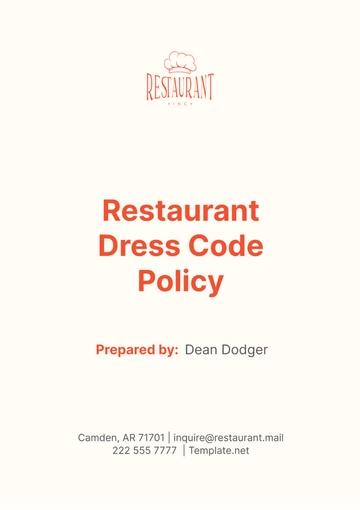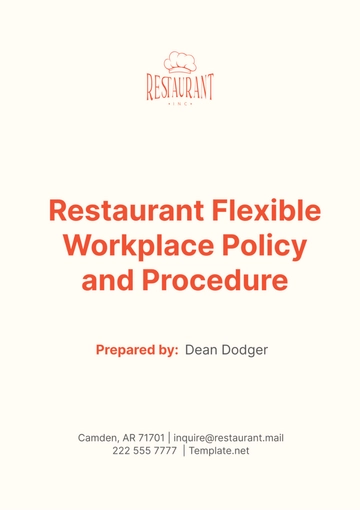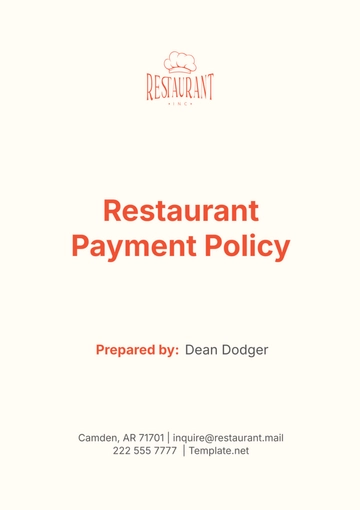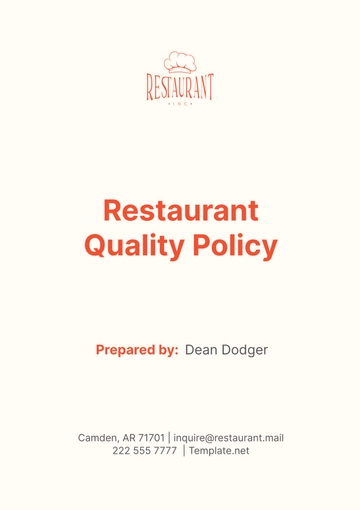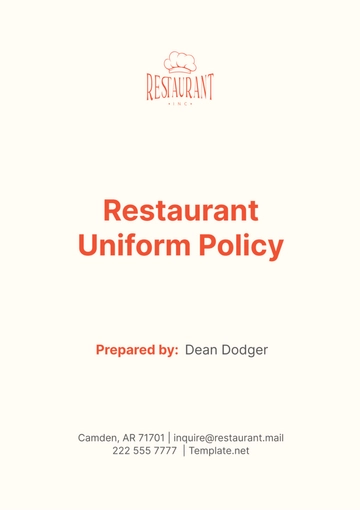Free Restaurant Progressive Discipline Policy
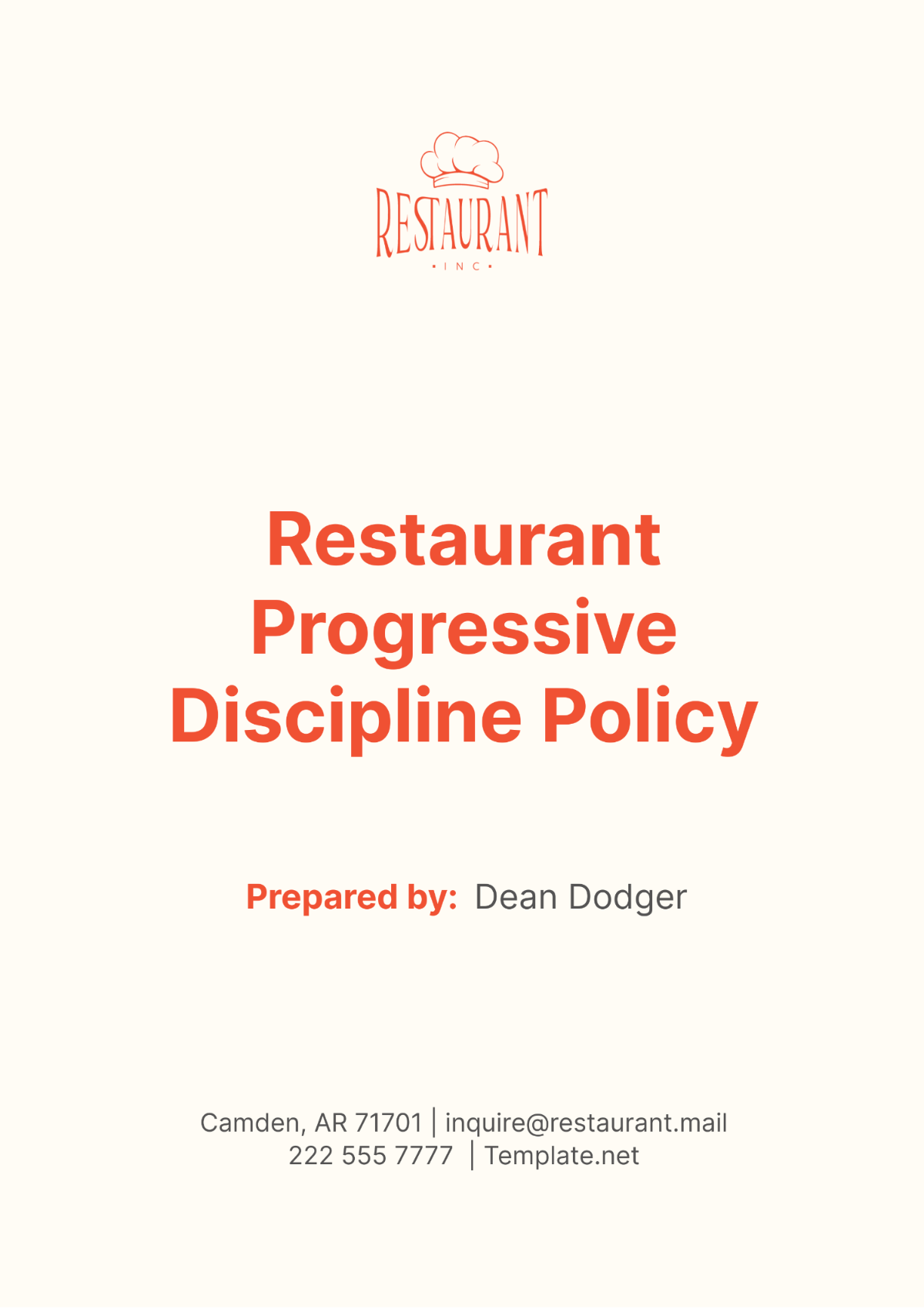
I. Introduction
The purpose of this Restaurant Progressive Discipline Policy is to establish a fair and consistent approach to addressing employee performance issues and misconduct. This policy applies to all employees, regardless of position or tenure, and is designed to ensure that disciplinary actions are conducted in a transparent and equitable manner. Our goal is to improve employee performance and behavior through a structured and supportive process, ultimately fostering a positive work environment.
II. Policy Statement
We are committed to maintaining a productive, safe, and respectful workplace. The Progressive Discipline Policy aims to provide clear guidelines for corrective action when employee behavior or performance falls below acceptable standards. By implementing a step-by-step disciplinary process, we seek to address issues promptly and effectively, giving employees the opportunity to correct their actions and continue contributing to our success.
III. Roles and Responsibilities
A. Management
Management is responsible for enforcing this policy consistently and fairly across all departments. Managers must identify performance and behavioral issues early, communicate concerns to employees, and document all disciplinary actions. They are expected to provide guidance and support to help employees improve and to ensure that all steps in the progressive discipline process are followed.
B. Employees
Employees are responsible for maintaining high standards of performance and conduct in accordance with our policies and procedures. They should understand the expectations for their roles and strive to meet them consistently. Employees are encouraged to seek clarification and support from their supervisors if they are uncertain about any aspect of their duties or our expectations.
C. Human Resources
Human Resources (HR) plays a crucial role in supporting both management and employees throughout the disciplinary process. HR is responsible for providing training on the Progressive Discipline Policy, ensuring that disciplinary actions are documented properly, and assisting in the fair and consistent application of the policy. HR also serves as a resource for employees who have questions or concerns about disciplinary actions and oversees the appeal process to ensure impartiality.
V. Steps in Progressive Discipline
A. Verbal Warning
A verbal warning is the first step in addressing minor performance issues or misconduct. It serves as an informal conversation between the manager and the employee to highlight the concern and provide guidance for improvement.
Circumstances Warranting a Verbal Warning:
Minor attendance issues (e.g., tardiness).
Minor breaches of conduct or policies.
Initial performance deficiencies.
Although a verbal warning is informal, managers should document the date, time, and content of the conversation. This documentation should be kept in the employee's file for reference in case further disciplinary action is needed.
B. Written Warning
A written warning is issued when an employee fails to improve after a verbal warning or commits a more serious infraction. It formalizes the disciplinary process and provides a clear outline of the issues and required corrective actions.
Circumstances Warranting a Written Warning:
Repeated attendance issues.
Continued performance deficiencies after a verbal warning.
More serious breaches of conduct or policies.
The written warning should include a description of the performance or conduct issues, previous attempts to address the issue, the expected improvements, a timeline for achieving these improvements, and potential consequences if the issues are not resolved. A copy of the written warning should be given to the employee and another copy placed in their personnel file.
C. Suspension
A suspension is a temporary removal of the employee from their duties to emphasize the seriousness of their actions and to provide time for the employee to reflect on their behavior.
Circumstance | Duration | Terms |
|---|---|---|
Serious misconduct | 1-3 days | Unpaid; employee must attend a meeting upon return |
Repeated violations of | 3-5 days | Unpaid; follow-up performance review upon return |
All suspensions must be documented in writing, including the reasons for the suspension, the duration, and the terms. This documentation should be signed by the employee and the manager and placed in the employee’s personnel file.
D. Termination
Termination is the final step in the progressive discipline process and is used when an employee fails to improve after previous disciplinary actions or commits a severe violation.
Circumstances Warranting Termination:
Gross misconduct (e.g., theft, violence).
Failure to improve after suspension.
Repeated serious violations of company policy.
The termination process involves a formal meeting with the employee, a detailed explanation of the reasons for termination, and the collection of any company property. The employee should be given their final paycheck, including payment for any accrued benefits, in accordance with state laws. Documentation of the termination, including the reasons and any previous disciplinary actions, should be added to the employee's personnel file.
VI. Appeal Process
Employees have the right to appeal disciplinary actions if they believe the actions were unjust or not in accordance with our policies.
Submit Appeal: The employee must submit a written appeal to Human Resources within 10 days of the disciplinary action, outlining the reasons for the appeal.
Review by HR: Human Resources will review the appeal, the employee’s personnel file, and any relevant documentation within 15 days.
Hearing: If necessary, a hearing will be conducted where the employee can present their case. The hearing will include HR, the employee, and relevant management personnel.
Decision: HR will provide a written decision on the appeal within 5 days of the hearing. The decision will be final and binding.
VII. Special Considerations
A. Gross Misconduct
Gross misconduct refers to severe actions that are detrimental to the workplace, including theft, violence, harassment, and other actions that seriously violate our policies and ethical standards. Instances of gross misconduct can result in immediate termination without the need for prior disciplinary steps. Such actions undermine the safety and integrity of our work environment and will not be tolerated.
B. Repeated Offenses
Repeated offenses occur when an employee fails to correct behavior after previous disciplinary actions. In these cases, progressive discipline may escalate more rapidly. For example, an employee who has already received a verbal and written warning may be subject to suspension or termination for subsequent infractions. This approach ensures that persistent issues are addressed promptly and effectively.
VIII. Confidentiality
All disciplinary actions and related documentation are confidential. Information regarding an employee's disciplinary history will be disclosed only to those with a legitimate need to know, such as HR personnel, the employee's direct manager, and legal authorities if required. Maintaining confidentiality helps protect the privacy of employees and ensures a fair and respectful disciplinary process.
IX. Training and Communication
Regular training ensures that all employees understand the Progressive Discipline Policy and its implementation. Effective communication of the policy helps in maintaining transparency and consistency.
Program | Duration | Frequency |
|---|---|---|
Manager Training | 4 hours | Annually |
Employee Orientation | 2 hours | At onboarding and annually |
Refresher Courses | 1 hour | Semi-annually |
The Progressive Discipline Policy will be communicated to all employees during their orientation and through the employee handbook. Managers will receive additional training on how to implement the policy. Regular reminders and updates will be provided through internal communications, such as emails and team meetings.
X. Review and Amendments
The Progressive Discipline Policy will be reviewed annually by Human Resources to ensure its effectiveness and relevance. Any amendments to the policy will be made in consultation with management and, if necessary, legal advisors. Employees will be notified of any changes to the policy through official communication channels, and updated copies of the policy will be distributed and made available in the employee handbook and on the company intranet.
- 100% Customizable, free editor
- Access 1 Million+ Templates, photo’s & graphics
- Download or share as a template
- Click and replace photos, graphics, text, backgrounds
- Resize, crop, AI write & more
- Access advanced editor
Discover the Restaurant Progressive Discipline Policy Template on Template.net. Tailored for the food service industry, this template offers editable and customizable guidelines for managing employee behavior effectively. Maintain a harmonious workplace with clear expectations and consequences, all editable in our AI Editor tool. Simplify your disciplinary processes with the Restaurant Progressive Discipline Policy Template.
You may also like
- HR Policy
- Restaurant Policy
- Company Policy
- Accounting Policies and Procedures
- Website Policy
- Privacy Policy
- Safety Policy
- School Policy
- IT and Software Policy
- Law Firm Policy
- Construction Policy
- Interior Design Policy
- Travel Agency Policy
- Education Academic Policy
- Security Policy
- Real Estate Policy
- Expense Policy
- Software Policy

